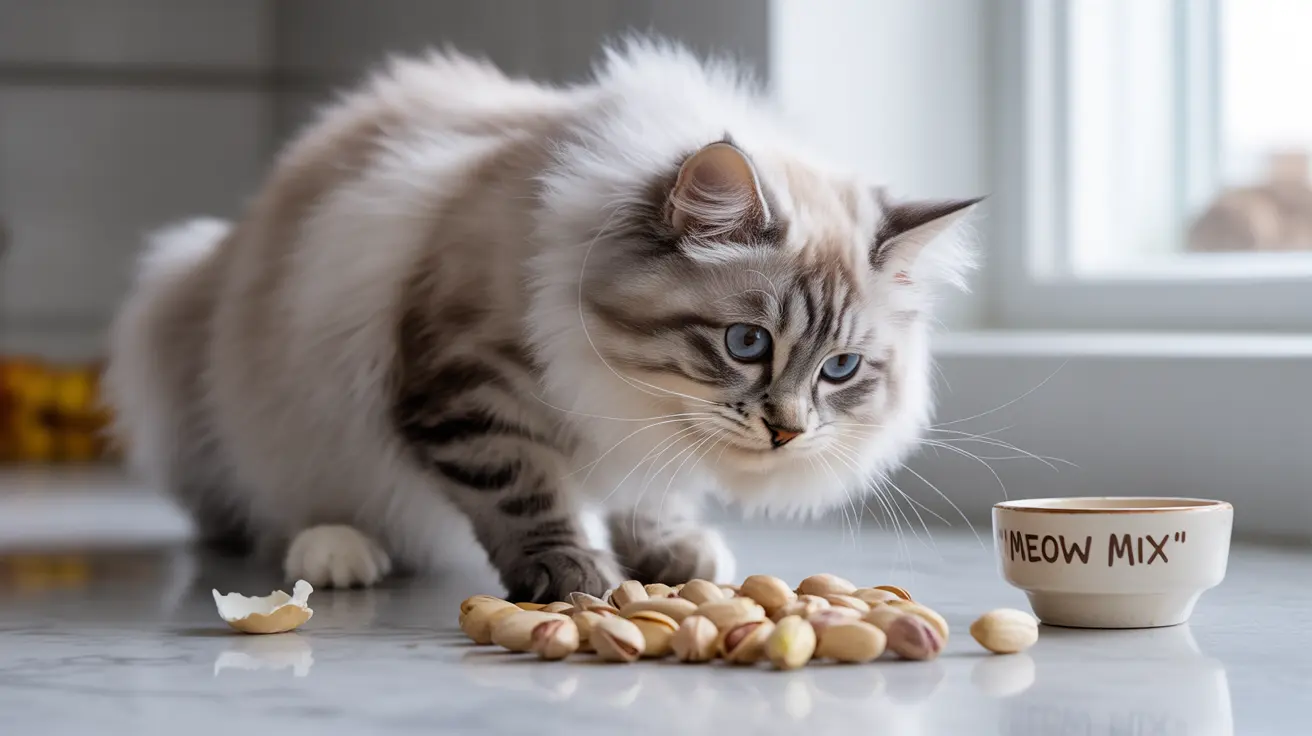The Truth About Cats and Pistachios
Cats are obligate carnivores, meaning their bodies are designed to process and utilize nutrients primarily from animal-based proteins. Their digestive systems aren't equipped to handle nuts like pistachios effectively, regardless of how nutritious these nuts might be for humans.
Why Pistachios Are Problematic for Cats
Several factors make pistachios particularly unsuitable for feline consumption:
- High fat content that can lead to pancreatitis
- Risk of salt toxicity from seasoned varieties
- Potential choking hazards from shells
- Difficulty in digestion
- Risk of intestinal blockage
Health Risks of Feeding Pistachios to Cats
Digestive Issues
When cats consume pistachios, they commonly experience:
- Vomiting
- Diarrhea
- Stomach pain
- Loss of appetite
- General gastrointestinal distress
Serious Medical Complications
More severe risks include:
- Pancreatitis from high fat content
- Intestinal obstruction from shells
- Sodium poisoning from salted varieties
- Potential allergic reactions
Signs Your Cat Has Eaten Pistachios
Watch for these warning signs if you suspect your cat has consumed pistachios:
- Lethargy
- Excessive thirst
- Abdominal pain or swelling
- Difficulty breathing
- Unusual behavior
- Constipation or straining
Safe Alternatives to Pistachios
Instead of pistachios, consider these cat-friendly treats:
- Commercial cat treats specifically formulated for felines
- Small pieces of cooked, plain chicken or turkey
- Tiny bits of cooked fish without seasonings
- Commercial cat grass
- Catnip as an occasional treat
Prevention and Safety Measures
To protect your cat from pistachio-related incidents:
- Store nuts in sealed containers out of reach
- Clean up any dropped shells immediately
- Keep kitchen counters clear when preparing nuts
- Educate family members about the risks
- Maintain a cat-safe environment
Frequently Asked Questions
Can cats safely eat pistachios or are they harmful?
While pistachios aren't toxic, they're harmful to cats due to their high fat content, potential for causing digestive issues, and risk of choking or blockage. It's best to avoid feeding pistachios to cats entirely.
What health risks do pistachios pose to cats if ingested?
Pistachios can cause pancreatitis, intestinal blockage, salt poisoning (if seasoned), and severe digestive upset. The high fat content can lead to obesity and other health complications.
How can I tell if my cat is having a reaction after eating pistachios?
Watch for symptoms like vomiting, diarrhea, lethargy, excessive thirst, abdominal pain, or difficulty breathing. If you notice any of these signs, contact your veterinarian immediately.
Are pistachio shells dangerous for cats and what should I do if my cat eats them?
Yes, pistachio shells are extremely dangerous as they can cause choking or intestinal blockage. If your cat eats shells, contact your veterinarian immediately for guidance.
What are safer treat alternatives to pistachios for my cat?
Safe alternatives include commercial cat treats, small pieces of cooked plain meat, cat grass, and catnip. Always choose treats specifically formulated for feline consumption.
Conclusion
While pistachios might seem like an innocent treat, they pose numerous health risks to cats with no nutritional benefits. Instead of offering pistachios, stick to veterinarian-approved treats designed specifically for feline consumption. Your cat's health and safety should always come first when considering human food as treats.






